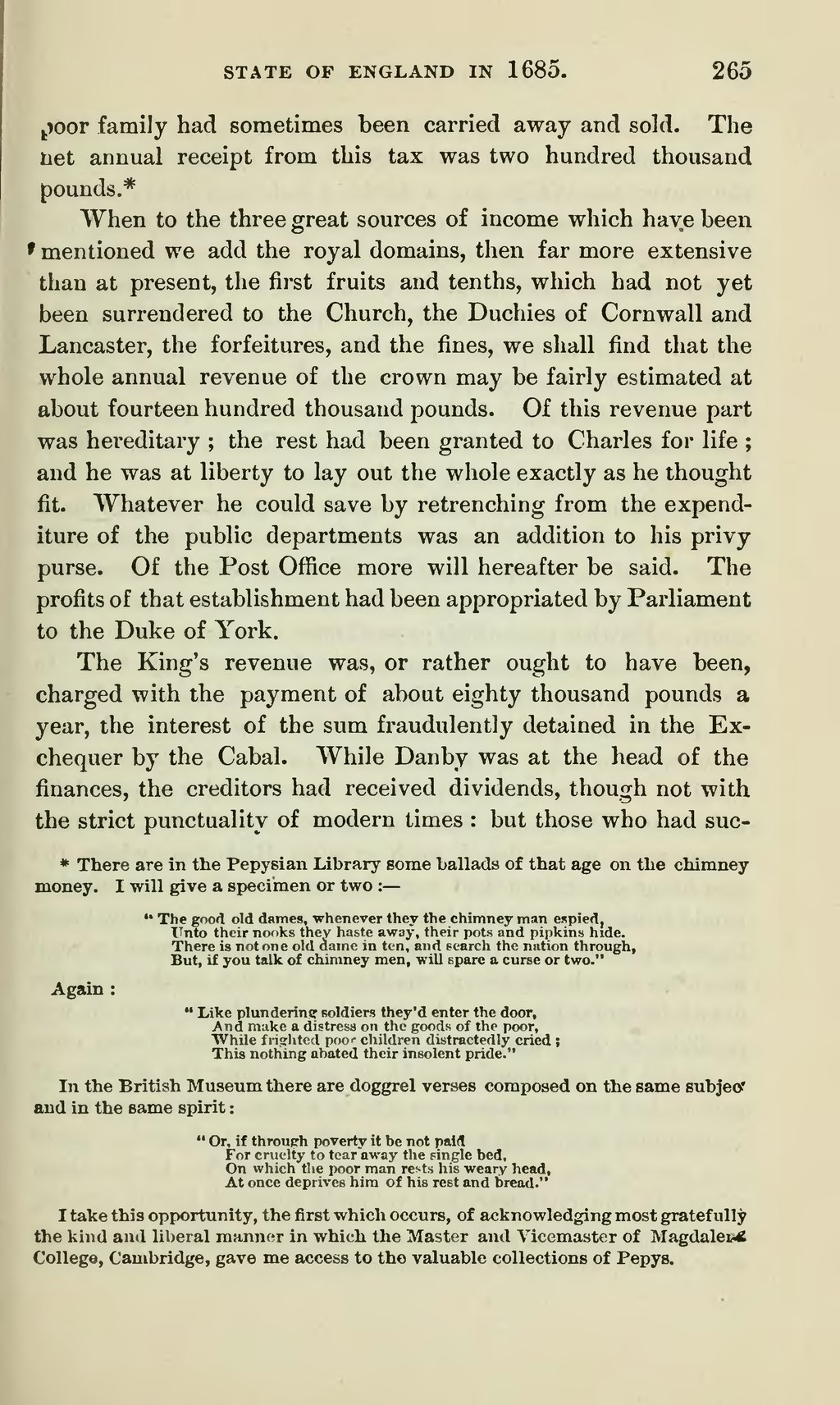poor family had sometimes been carried away and sold. The net annual receipt from this tax was two hundred thousand pounds.[1]
When to the three great sources of income which have been mentioned we add the royal domains, then far more extensive than at present, the first fruits and tenths, which had not yet been surrendered to the Church, the Duchies of Cornwall and Lancaster, the forfeitures, and the fines, we shall find that the whole annual revenue of the crown may be fairly estimated at about fourteen hundred thousand pounds. Of this revenue part was hereditary; the rest had been granted to Charles for life; and he was at liberty to lay out the whole exactly as he thought fit. Whatever he could save by retrenching from the expenditure of the public departments was an addition to his privy purse. Of the Post Office more will hereafter be said. The profits of that establishment had been appropriated by Parliament to the Duke of York.
The King's revenue was, or rather ought to have been, charged with the payment of about eighty thousand pounds a year, the interest of the sum fraudulently destined in the Exchequer by the Cabal. While Danby was at the head of the finances, the creditors had received dividends, though not with the strict punctuality of modern times: but those who had suc-
- ↑ There are in the Pepysian Library some ballads of that age on the chimney money. I will give a specimen or two:—
"The good old dames whenever they the chimney man espied,
Unto their nooks they haste away, their pots and pipkins hide.
There is not one old dame in ten, and search the nation through,
But, if you talk of chimney men, will spare a curse or two."Again:
"Like plundering soldiers they'd enter the door,
And make a distress on the goods of the poor.
While frighted poor children distractedly cried;
This nothing abated their insolent pride."In the British Museum there are doggrel verses composed on the same subject and in the same spirit:
"Or, if through poverty it be not paid
For cruelty to tear away the single bed,
On which the poor man rests his weary head,
At once deprives him of his rest and bread."I take this opportunity the first which occurs, of acknowledging most grateful the kind and liberal manner in which the Master and Vicemaster of Magdalei College, Cambridge, gave me access to the valuable collections of Pepys.
